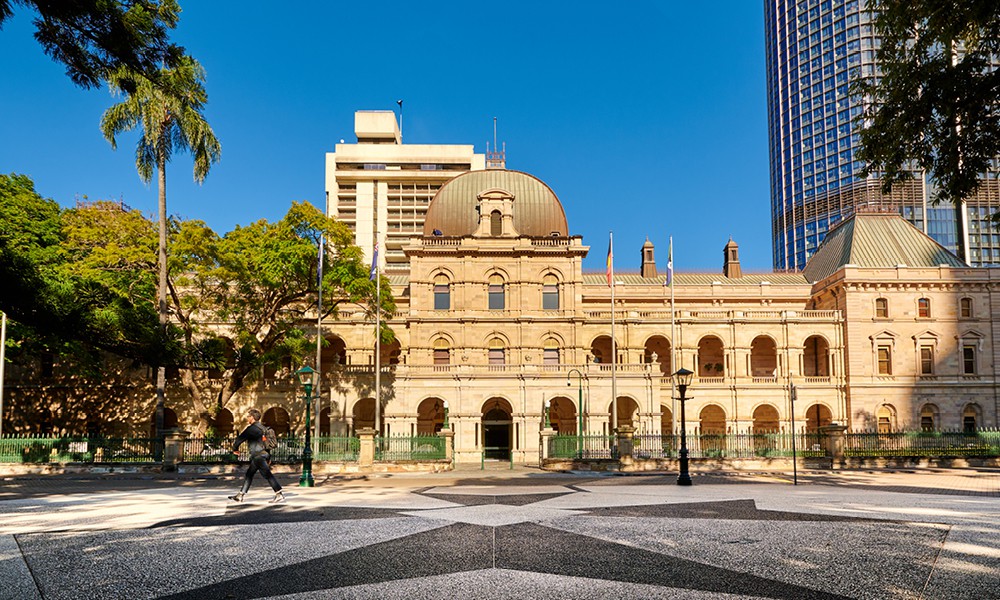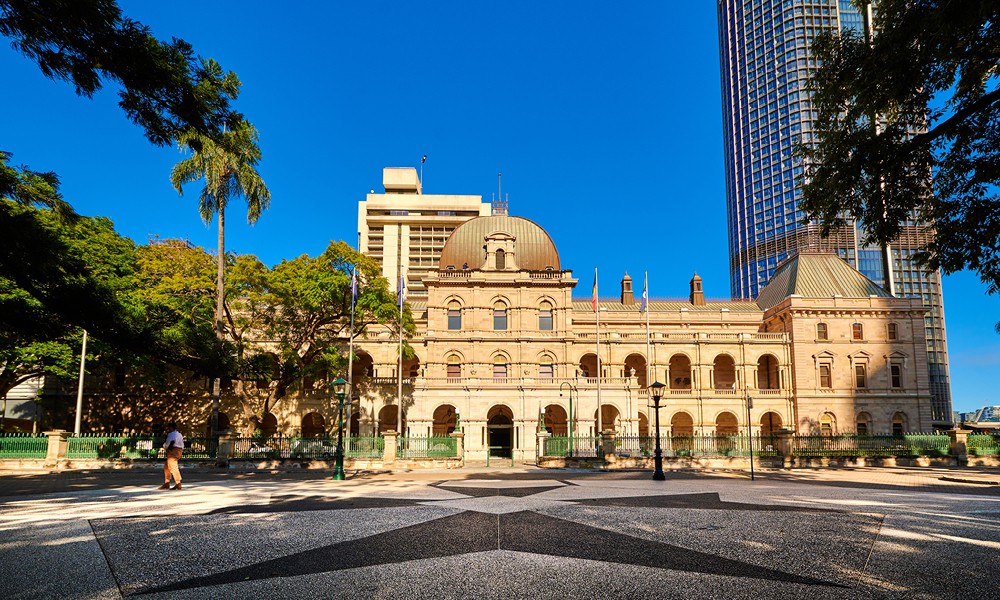A Queensland parliamentary committee has recommended the State Government implement laws making it a crime for anyone to display “hate symbols”, including those relating to “Nazi and ISIS ideology”.
The Legal Affairs and Safety Committee (LASC) has recommended a suite of a changes in its ‘Inquiry into serious vilification and hate crimes’ report tabled in Parliament yesterday – including the development of a restorative justice strategy for hate crime offences.
The bipartisan committee made 17 recommendations in its 68-page report in response to a referral, by then parliamentary Leader of the House Yvette D’Ath, in April last year to review the state’s vilification and hate crime laws.
One of the recommendations calls on the Queensland Government to ensure anti-vilification provisions – in both civil and criminal laws – cover the attributes of race, religion, disability, gender and/or sex, sexual orientation, gender identity and/gender expression, sex characteristics and/or intersex status and medical status (including HIV/AIDS).
LASC Chair Peter Russo, in the report’s foreword, said the state currently had no dedicated legislation to address vilification or hate crimes.
“Queensland does not have a piece of legislation dedicated to serious vilification and hate crimes,” Mr Russo said. “There are legislative provisions in various pieces of state and commonwealth legislation that seek to respond to these issues, but it is clear from the evidence received in the course of this inquiry that people are still experiencing the devastating effects of vilification and hate crimes, and more needs to be done to address these insidious problems in our society.
“It is equally clear that what is needed is cultural change in our approach to such matters: unblinking recognition that such problems exist in our society and at levels that are wholly unacceptable.
“The recommendations made by the Committee in this report recognise that a multi-faceted and concerted approach is what is needed in order to combat the pernicious, destructive thinking and behaviour which manifests in serious vilification and hate crimes.
“To that end, the recommendations made by the Committee are intended to achieve change by a combination of education, community empowerment, and inter-governmental cooperation.”
Queensland Law Society was one of a myriad stakeholders to make written submissions to the inquiry and appear before the committee during public hearings in September 2021.
QLS, represented by 2021 QLS President Elizabeth Shearer and the Society’s Human Rights and Public Law Committee Chair Dan Rogers and Legal Policy graduate Irene Gallagher, submitted that barriers to prosecuting vilification and hate crimes under section 131A of the Anti-Discrimination Act 1991 should be removed.
The Society also advocated for a systemic response to vilification and hate crime, and supported investment in police training, community awareness and education.
It also called for increased funding to community legal centres and Human Rights Commissions, but warned that the introduction of further offences would be unlikely to resolve the existing barriers to pursuing redress for serious vilification and hate crime.
The Queensland Legal Affairs and Safety Committee (LASC) 17 recommendations are that the Queensland Government:
- Work with the Commonwealth and other states and territories to address online vilification, including the means for police to secure evidence of online vilification.
- The Queensland Police ensure standardisation of record-keeping for reports of hate crime and serious vilification.
- Encourage and support third-party (community-led) reporting mechanisms in trusted community organisations to report vilification and hate crimes to relevant authorities.
- Ensure anti-vilification provisions (in both civil and criminal laws) cover the attributes of: race, religion, gender and/or sex, sexual orientation, gender identity and/or gender expression, sex characteristics and/or intersex status, disability or medical status – including HIV/AIDS status.
- Investigate lowering the threshold of the civil incitement test.
- Adopt the definition of ‘public act’ in section 93Z(5) of the Crimes Act 1900 (NSW), which incorporates social media and other electronic methods, and ensure it applies to civil and criminal incitement-based and harm-based provisions in Queensland’s anti-vilification laws.
- Investigate the viability of removing the requirement for the written consent of a Crown Law officer before commencing a prosecution for serious vilification.
- Introduce a statutory aggravation regarding hate/serious vilification into the Criminal Code Act 1899 (Qld) and Summary Offences Act 2005 (Qld) to apply to criminal conduct.
- Relocate section 131A from the Anti-Discrimination Act 1991 (Qld) into the Criminal Code 1899 (Qld).
- Establish a hate crime scrutiny panel involving police and community advocates as an ongoing mutual education process to guide improvements in practice and increase communication on cases.
- Develop a restorative justice strategy concerning hate crimes, in consultation with affected communities.
- Look into viable programs to support organisations to navigate the system for reporting serious vilification.
- Investigate funding organisations such as Legal Aid Queensland and the Aboriginal Torres Strait Islander Legal Service to have the ability to initiate civil actions on vilification matters.
- Support specialist advocacy services and legal clinics dedicated to hate crime, human rights, discrimination and vilification for CALD clients of limited socio-economic means.
- Support the Queensland Police Service in the effective utilisation of vilification provisions in the criminal jurisdiction.
- Establish a criminal offence that prohibits the display of hate symbols, including those relating to Nazi and ISIS ideology, with considered exceptions to the prohibition.
- Develop community education campaigns in conjunction with organisations such as the Queensland Human Rights Commission and Multicultural Australia to educate the community about vilification and hate conduct.
Read the full report.









Share this article